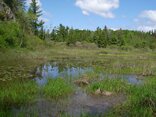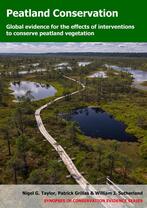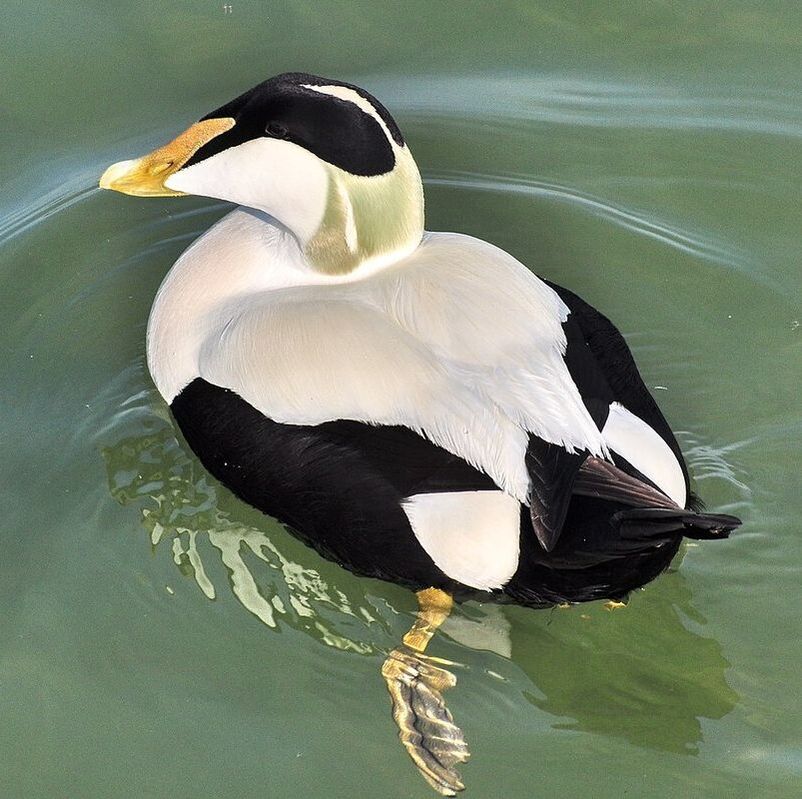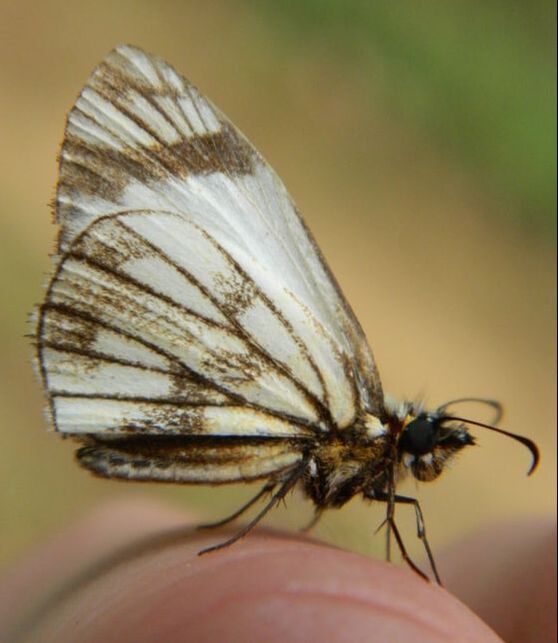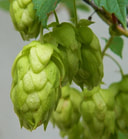I have broad research interests, but with a unifying theme of environmental protection. I hope my work will help us understand how the environment is changing and inform management to mitigate those changes.
Wetland conservation: evidence for the effectiveness of interventions
|
This project (2016-present) involves collating actions that managers may use to conserve wetland plant communities, then finding and summarising published evidence about whether these actions really work.
This project was in collaboration with Tour du Valat (Arles, France) and Conservation Evidence (Cambridge, UK). It has been funded by the MAVA Foundation and Natural Environment Research Council. Key publications:
|
Evidence-based conservation of seabirds in the face of climate change
|
This ongoing project is exploring the links between climate change pressures and conservation action, using seabirds in the North-East Atlantic as a case study. We're creating evidence-based guidance that assesses climate change vulnerability and presents possible conservation actions. We're also interviewing seabird conservationists to understand the landscape of actors and interactions, particularly in relation to climate change, to identify gaps and opportunities to improve conservation effectiveness.
Key publications:
|
Wetlands and people
|
I am interested in the interactions between wetlands and society. A better understanding of these relationships will help us to strengthen conservation arguments, and understand how we can manage wetlands to maximise the services they provide.
I recently (2019-2021) led a project to identify key issues and important research questions for Mediterranean wetlands over the next 30 years. This involved collaborators from across the Mediterranean Basin. I was also involved in a project (2015-2016) quantifying the relationship between water quality and recreational use - which turned out to be pretty weak. Other factors seem to influence people's choice of recreational areas, such as the presence of amenities. Or perhaps our metric of water quality (Water Framework Directive status) did not pick up aspects of water quality that people do care about e.g. litter. Key publications:
|
Impacts of biological invasions
|
My PhD research (2012-2016) investigated biological invasions, providing quantitative evidence for impact of invasive species as well as developing methodologies for predicting invasions. My study systems included aquatic crustacea (amphipod shrimp, crayfish and crabs) as well as protozoa in microcosms. I am a currently (2019-) a contributor to the InvaCost project, quantifying the economic costs of invasive species.
Key publications:
|
EntoGEM: evidence for changes in insect biodiversity
|
I am currently (2019-) contributing to a systematic map of evidence relating to changes in insect biodiversity (abundance, diversity, distributions). For more info, see https://entogem.github.io/. You can track progress of the systematic map at https://sysrev.com/u/371/p/16612.
Key publications:
|
National strategies for crop wild relative conservation
|
Crop wild relatives (CWRs; wild plants related to crop plants) could be a vital tool in maintaining food security. They contain a reservoir of genetic diversity that could be incorporated into the depauperate gene pool of crops to increase crop yields, nutritional value of crops and resistance to biotic and abiotic stresses. This useful genetic resource must be protected and conserved - rather than ignored and eroded as is currently the case.
A conservation strategy for CWRs in the Czech Republic was developed through a collaboration between The University of Birmingham, the Czech Research Institute for Crop Production, Czech Nature Conservation Agency and FAO. We used a variety of analyses in Geographic Information Systems to make holistic, systematic recommendations for the conservation of Czech CWRs. Key publications:
|
Research funding
- Cambridge-Africa ALBORADA Research Fund, November 2023: £2,545
- Water@Leeds SPRING Grant (Supporting Postgraduate Research to Inspire the Next Generation), June 2015: £250
Prizes, grants and scholarships
- University of Cambridge Vice-Chancellor's Research Impact and Engagement Award 2023: Professor William Sutherland and Conservation Evidence Team
- Highly Commended at CIEEM Awards 2023: Transforming Conservation – A Practical Guide to Evidence and Decision Making (in which I co-authored two chapters) NERC PhD Scholarship, University of Leeds 2012-2016
- Conference scholarship, NeoBiota 2016: €300
- British Ecological Society travel grant 2016: £300
- Student conference grant, National Crayfish Conference 2015: £185
- Environment YES Winner 2014 as part of FruitFULL Ltd., a company producing edible fruit coatings to reduce post-harvest fruit losses.
- Best Ecology, Evolution and HDD talk at Leeds FBS Postgraduate Symposium 2015
- Best Ecology, Evolution and HDD Poster at Leeds FBS Postgraduate Symposium 2014
- NERC Short Article writing competition, 3rd place 2015
- Prize for Meritorious Work in Biology, University of Oxford, 2011
- College Scholarship, Jesus College Oxford, 2010-2011
Service
Associate editor: Wetlands Ecology and Management
Article reviews: Biological Invasions (2), Conservation Biology (2), Frontiers in Ecology and Evolution (3), Conservation Science and Practice (1), Frontiers in Environmental Science (1), Global Change Biology (1), Global Ecology and Conservation (2), Science of the Total Environment (1).
I am keen to review more manuscripts on biological invasions, conservation biology, wetland ecology, wetland conservation, and environmental evidence syntheses (reviews, systematic reviews, systematic maps).
Chairing conference sessions: European Congress of Conservation Biology 2024 (1 session)
Abstract reviews: Society of Wetland Scientists Twitter Symposium 2018; International Congress of Conservation Biology 2019
Organizing committee: Society of Wetland Scientists Twitter Symposium 2018 (#SWSTwitterSymp2018)
Article reviews: Biological Invasions (2), Conservation Biology (2), Frontiers in Ecology and Evolution (3), Conservation Science and Practice (1), Frontiers in Environmental Science (1), Global Change Biology (1), Global Ecology and Conservation (2), Science of the Total Environment (1).
I am keen to review more manuscripts on biological invasions, conservation biology, wetland ecology, wetland conservation, and environmental evidence syntheses (reviews, systematic reviews, systematic maps).
Chairing conference sessions: European Congress of Conservation Biology 2024 (1 session)
Abstract reviews: Society of Wetland Scientists Twitter Symposium 2018; International Congress of Conservation Biology 2019
Organizing committee: Society of Wetland Scientists Twitter Symposium 2018 (#SWSTwitterSymp2018)
Professional memberships
British Ecological Society (2012-)
Royal Society of Biology (2012-)
Society of Wetland Scientists (2018-)
Society for Conservation Biology (2019-)
Royal Society of Biology (2012-)
Society of Wetland Scientists (2018-)
Society for Conservation Biology (2019-)
Where in the world?
I try to avoid flying as much as possible, for both work and personal travel, in order to minimize my carbon footprint.
